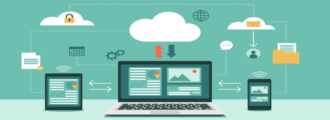The healthcare industry is an ever-changing, complex, and fast-paced environment. With industry-wide shifts and ever-changing business models, healthcare organizations require a robust and adaptable digital transformation strategy to support and manage their workforces more efficiently.
Enter Workday Healthcare!
Workday Healthcare is a set of Enterprise Resource Planning (ERP) tools created to address the unique needs and challenges of the medical care industry. This way, healthcare customers can automate tasks and focus on improving the quality of patient care, rather than spending unnecessary time completing manual tasks.
Read on to learn more about Workday Healthcare, how it can empower healthcare providers, and where our expert consultants can fit in with your organization.
What is Workday Healthcare?
Workday Healthcare is one of Workday’s ERP solutions, a digital transformation strategy designed to empower healthcare professionals and cater to the unique needs of healthcare organizations, hospitals, research institutions, and more.
Workday gives healthcare organizations the tools to grow over time, adapt to changes related to healthcare reforms that alter business models, drive operational efficiency, attract the right talent, implement new business models, and expand lines of service.
This set of solutions provides industry-specific features to tackle the unique needs of healthcare organizations. Designed with direct input from healthcare providers, Workday helps organizations manage a diverse clinical and non-clinical workforce, optimize financial performance, and support healthcare supply chain obligations.
Users can leverage cloud capabilities, artificial intelligence (AI), and machine learning (ML) to reduce burnout risks, improve supply chain operations, and gain better data insights for more informed decisions over time. With task automation capabilities, employees can spend less time managing data and completing tasks, and more time improving the quality of patient care across teams.
ERP in Healthcare
Enterprise Resource Planning Systems (ERP) are technological software solutions containing modules designed for tracking and managing data and facilitating more efficient communication among departments. Workday’s intelligent data core merges external and Workday data in one place for all your data insight needs.
With Workday, your healthcare ERP applications are conveniently wrapped into a single solution. This way, users can gain a complete picture of their organization, retain talent, and better manage their resources.
Overview of Workday
Here’s a look at some key features of Workday Healthcare:
Increase Operational Efficiency
Increasing operational efficiency is crucial to remain competitive in the medical care industry. Workday combines finance and supply chain management (SCM) efforts to improve business operations across the entire organization. When customers purchase Workday services, they can manage resources more efficiently, better manage costs, and foster better SCM.
Workday also lets you practice better financial management by comparing operating costs across your organization — whether it’s one location or a network of facilities — to reduce costs and optimize opportunities.
You’ll also be able to gain better insights into your SCM efforts. This transparency and built-in reporting capabilities can help internal teams increase efficiencies, decrease risk, and improve decision-making across the organization.
Enhance Supply Chain Management
Did you know supplies comprise almost one-third of a healthcare organization’s total operating costs? This makes it a key area to focus on for controlling costs and providing better experiences for patients and providers.
Workday conveniently merges inventory, finances, procurement, planning, and analytics into a cloud-based program. This way, employees can support excellent patient care with a seamless process for stocking, purchasing, managing, and replenishing supplies across teams and departments.
With self-service tools and automated requisitioning functions, Workday can help you make better contracting and standardization decisions and maintain contract pricing and product formulary compliance over time.
Attract and Manage Talent
For healthcare companies, labor expenses comprise some of the highest costs, which means optimizing resources and reducing turnover is crucial. Workday enables your HR staff to concentrate on people development, innovation, and productivity to provide the best care for patients and simplify operations.
With Workday, managing, engaging, and evaluating your personnel is simple at every stage of the employee life cycle, from hiring and recruiting to performance and development. Workday offers a single source of truth for managing certificates and licenses, planning for succession, talent management and capabilities, and hiring the best individuals for the job.
Growth and Change
Your technology must be capable of supporting new legal specifications and payment schemes. Workday’s single, adjustable technology architecture enables you to change organizational structures, business processes, and reporting hierarchies without involving your IT department.
Workday assists you as your business grows and transforms by:
- Assessing the efficiency, performance, and financial sustainability of new business models, acquisitions, and mergers
- Speeding up data integration after mergers to provide cost and procurement synergies across teams
- Providing onboarding and retention initiatives that improve visibility into the employees acquired through mergers and acquisitions
Improved Decision Making
Answering the questions that affect your business’s worth and performance requires the use of advanced analytics technologies. Workday creates a single actionable experience by combining financial and revenue data with operational indicators, satisfaction ratings, and other benchmarks from your clinical and revenue accounting systems and other auxiliary systems.
Organizations need effective business intelligence products and data warehousing tools to get all the insight they want. With this, you can respond to questions like:
- How well are we promoting standardization and contract compliance?
- How did my physician practice perform in planned work hours per procedure versus actual hours worked?
Workday makes examining profitability, payroll expenses, performance, retention risk, inventory, and other factors simple by enabling reporting across every part of your business. Instead of manually sharing and maintaining spreadsheets, users can support cross-organizational collaboration for budgeting and planning by leveraging worksheets and other familiar features.
Regulated Compliance
The medical care industry carries many certifications and regulations; maintaining compliance with these is crucial. Workday Healthcare has features that align healthcare organizations with healthcare-specific labor laws and standards, reducing the risk of non-compliance and penalties over time.
Mobile Access
The Workday mobile app gives healthcare professionals access to human resources information and lets them perform daily tasks from anywhere. With mobile app capabilities, employees can check schedules, review paystubs, and request time off.
Workday Supply Chain Management
Supply chain management’s (SCM) function in the medical care industry continuously evolves as new business models appear and care continues to grow. Supply chain leaders must balance price, quality, and results, while also handling more advanced cost-containment techniques, such as emphasizing clinical products and use.
The appropriate resources and information are necessary to enable strategic decision-making and operational effectiveness in light of these growing demands. Unfortunately, today’s inventory and buying systems are based on outdated, rigid technologies with limited analytics and reporting capabilities and no direct connection to data on finances, revenues, planning, or human resources.
Workday offers complete SCM functionality by integrating analytics, planning, supply chain, financials, and HR activities into a single cloud-based solution. Workday enables users to standardize processes, build high-performing teams, collaborate on planning and sourcing, and manage their supply chain from any desktop or mobile device.
Benefits of Workday in Healthcare
Here’s a look at the key benefits of Workday technology in healthcare:
- Align employee skill sets with unique job requirements
- Improve company visibility and compliance with laws and industry regulations
- Optimize workforce efficiency by focusing on quality patient care and clinical initiatives
- Adapt to the ever-changing healthcare industry
- Combine HR, finance, planning, SCM, and analytics processes in one place
- Assess skill gaps and upskill employees as needed
- Provide recommendations for future work
Healthcare Providers Using Workday
Workday’s Healthcare and SCM modules have gained momentum as healthcare organizations require more efficient processes to remain competitive in the industry With healthcare organizations such as Bronson Healthcare, Northeast Georgia Health System, and Sharp Healthcare choosing Workday, they can support their business model, improve patient care, improve operational efficiency, and phase out manual processes.
How Can We Help?
Are you considering a new ERP solution? Or maybe you’re just looking to optimize your healthcare operations? Surety Systems can help with that!
Our senior-level Workday consultants have the skills and experience needed to help you implement a new Workday solution or add to your existing Workday ecosystem, ensuring your technological investment is maximized in the long run.
Contact Us
Ready to learn more about Workday Healthcare and where our Workday consultants can fit into your organization? Contact us today!




